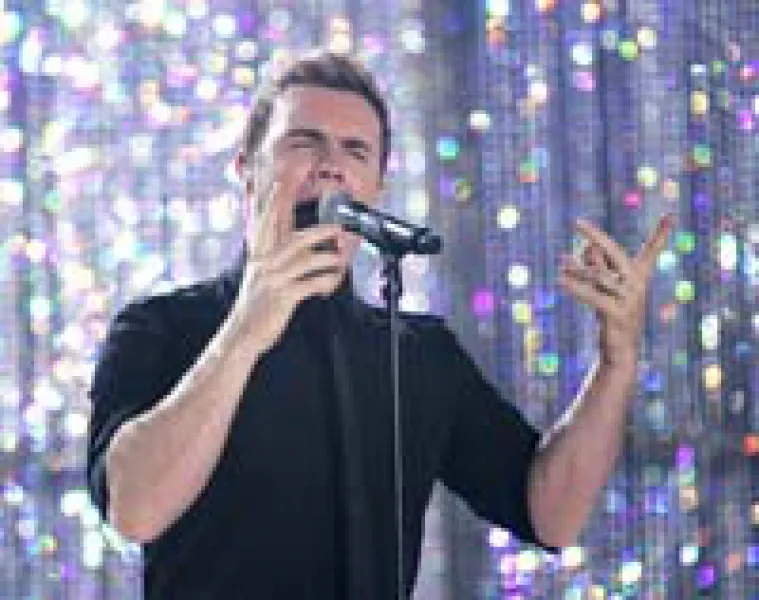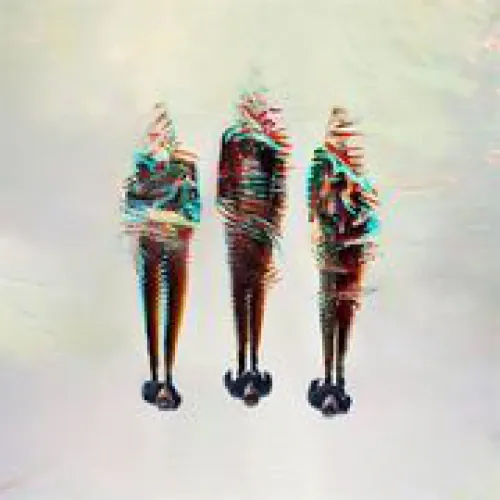
Take That
Top Take That albums
Top Take That lyrics
Take That biography
As the most popular teen pop sensation in Britain since the '60s, Take That ruled the U.K. charts during the first half of the '90s. In strict commercial terms, the band sold more records than any English act since the Beatles, though the cultural and musical importance was significantly less substantial. Conceived as a British answer to New Kids on the Block, Take That initially worked the same territory as their American counterparts, singing watered-down new jack R&B, urban soul, and mainstream pop. Eventually, the group worked their way toward Hi-NRG dance music, while also pursuing an adult contemporary ballad direction. Take That's boyish good looks guaranteed them a significant portion of the teenybopper audience, but in a bizarre twist, most of their videos and promotional photos had a strong homos**ual undercurrent -- they were marketed to pre-teen girls and a kitschy gay audience simultaneously. Take That was also able to make inroads in the adult audience in Britain through Gary Barlow's melodic, sensitive ballads. For nearly five years, the group's popularity was unsurpa**ed in Britain, as they racked up a total of seven number one hits. By the middle of the decade, all of the members were entering their mid-twenties and became disenchanted with each other. Furthermore, the pop music tastes in Britain were shifting toward the cla**ic guitar pop sounds of Brit-pop bands like Blur and Oasis, who were able to appeal to both the indie rock and teen pop audience. Consequently, the group called it quits in 1996, as Oasis began to surpa** Take That both in terms of sales and cultural impact. Nevertheless, Take That remained one of the most interesting and popular British teen pop phenomenons not only of the '90s, but of the rock & roll era.br /br /Gary Barlow (born January 20, 1971) was always the central figure of Take That. As the lead vocalist and songwriter for the band, he determined their musical direction. As a child, Barlow was already a gifted musician and, by the age of 14, he was playing organ in Ken Dodd's supporting band. One of Barlow's first songs, "Let's Pray for Christmas," was a finalist in an original Christmas song competition on the BBC television show Pebble Mill. In his late teens, he came in contact with Mark Owen (born January 27, 1974) and Robbie Williams (born February 13, 1974), two other young musicians that came from middle-cla** backgrounds. Williams' father was a comedian and his mother was a singer; before the formation of Take That, he had briefly appeared in the British soap opera Brookside. Owen had previously auditioned and failed for the football team Manchester United. The trio formed the Cutest Rush, which had a short-lived career. Record producer/manager Nigel Martin Smith had the intention of putting together a British pop group in the vein of New Kids on the Block, and approached the members of the Cutest Rush. Barlow, Owen, and Williams agreed, and along with Jason Orange (born July 10, 1970) and Howard Donald (born April 28, 1968) -- two former members of a breakdancing troupe called Street Beat -- they became Take That in 1990.br /br /After a few brief tours through gay English nightclubs, Take That released their debut single, "Do What U Like," on their independent Dance U.K. label in July of 1991. "Do What U Like" became a minor sensation, primarily because the video was quite suggestive, and featured the band's bare behinds. The single caused enough uproar for RCA Records to sign the group in the fall of 1991, and their first single for the label, "Promises," scraped the Top 40 by the end of the year. In early 1992, Take That underwent a Safe Sex club tour to support their third single, "Once You've Tasted Love," but the record only reached number 47. The band didn't break into the big-time until that summer, when their cover of Tavares' "It Only Takes a Minute" reached number seven. Following the single's success, Take That became a British media sensation, which set the stage for the group's debut, Take That and Party, to debut at number five upon its release in the fall. Within a month, the single "A Million Love Songs," reached the Top Ten. At the end of the year, the group took home no less than seven awards at the Smash Hits Awards, and the debut continued to climb the charts, peaking at number two. Early in 1993, the group's number three cover of Barry Manilow's "Could It Be Magic" won a Brit award for Best British single; shortly afterward, "Why Can't I Wake up With You" reached number two.br /br /Despite their ma**ive success in Britain, the American release of Take That's debut in early 1993 went virtually unnoticed, even though it was supported with a marketing campaign that placed the band on cereal boxes. Their lack of American success went unnoticed, however, when "Pray," the first single from their forthcoming second album, entered the charts at number one. In the fall, "Relight My Fire," which featured a cameo from Lulu, reached number one. Everything Changes, the band's second album, entered the charts at number one upon its October release. Throughout the end of 1993 and 1994, Everything Changes yielded hit singles, with the majority of the releases making their way to number one. Though it was a huge success in the U.K., Canada, and Europe, the album was never released in the United States. br /br /As Take That was preparing their third album, Britain's musical tastes were beginning to change, shifting away from the group's trademarked lightweight dance-pop and toward cla**ic British guitar pop. Blur, Oasis, and Pulp became serious contenders for Take That's popularity, and the group didn't ignore the threat -- they just responded to it in different ways. Gary Barlow plowed on ahead with Take That, but the first single from the forthcoming third album, "Back for Good," was more substantive than any of their previous singles and earned them good reviews from all quarters of the press. However, the single suggested that Barlow was beginning to distance himself from the band and he wasn't the only member to act in such a manner. In particular, Robbie Williams was becoming known as the "wild" member, and was alienating himself from the rest of the group. Nobody Else, the band's third album, was a number one hit upon its spring release, but Williams was noticeably quiet on the record. During the summer of 1995, it became evident that he was getting ready to break away from Take That. Williams began tagging along after Oasis, who were notorious for their drug and alcohol intake. He became the target of a number of tabloid reports of his bad behavior, and he began bragging to the weekly music press that he was working on solo material that sounded like Oasis. So it didn't really come as a surprise when he left the group in July of 1995, announcing that he was working on a solo album. Following his departure, Take That immediately removed his name and likeness from all promotional and commercial material; his face didn't even appear on the cover of the American release of Nobody Else.br /br /Williams wasn't the only member of the group feeling the pinch of the Brit-pop revolution. Since every member of Take That were young men in their mid-twenties, searching for their own identities and desperate to retain credibility, they were beginning to feel uncomfortable with the shiny, polished pop that their group had trademarked. All of the members, that is, except Gary Barlow, who had decided that he was the heir to the throne Elton John and George Michael once held. As the group was unravelling, "Back for Good" was taking off on American radio, getting heavy airplay on adult contemporary and Top 40 radio stations, as well as MTV, which helped set the stage for a solo career that Barlow was clearly planning. br /br /So, it didn't really come as a surprise when Take That announced they had broken up on February 13, 1996. Following the press release, Take That released a greatest hits collection, with their final single, a cover of the Bee Gees' "How Deep Is Your Love?," entering the charts at number one. Barlow began working with a batch of professional songwriters, including Diane Warren, releasing a single in the summer that showcased a more mature side of the singer. It stalled at number two, being kept out of the pole position by Spice Girls, a dance-pop group that was touted as the female Take That. Mark Owen, for his part, began working on a solo album that was heavily influenced by Paul Weller and Radiohead. Orange and Donald declined to begin solo careers.br /br /And Williams? He released his first solo single in the summer of 1996. Despite his initial reports, it didn't sound a thing like Oasis. It was a cover of George Michael's "Freedom 90" that quickly fell off the charts. ~ Stephen Thomas Erlewine, All Music Guide


